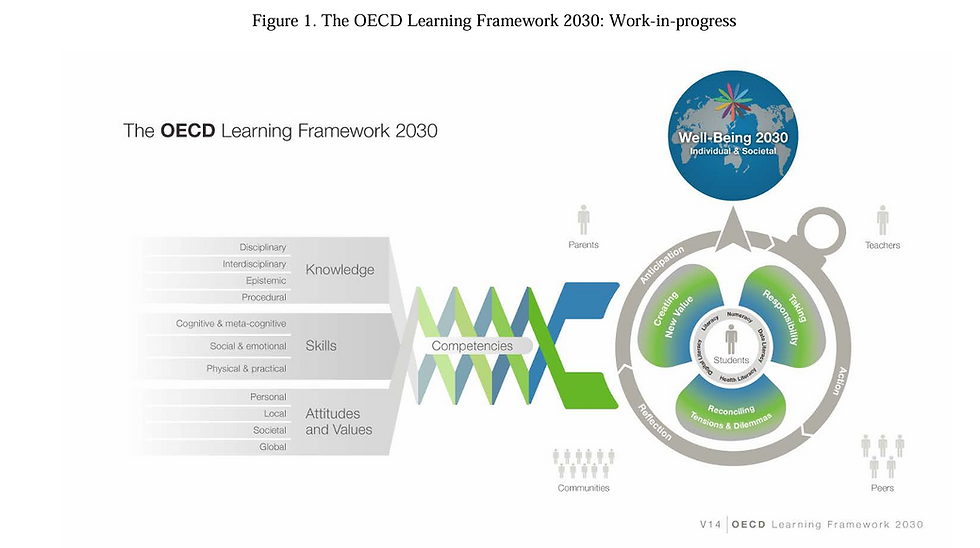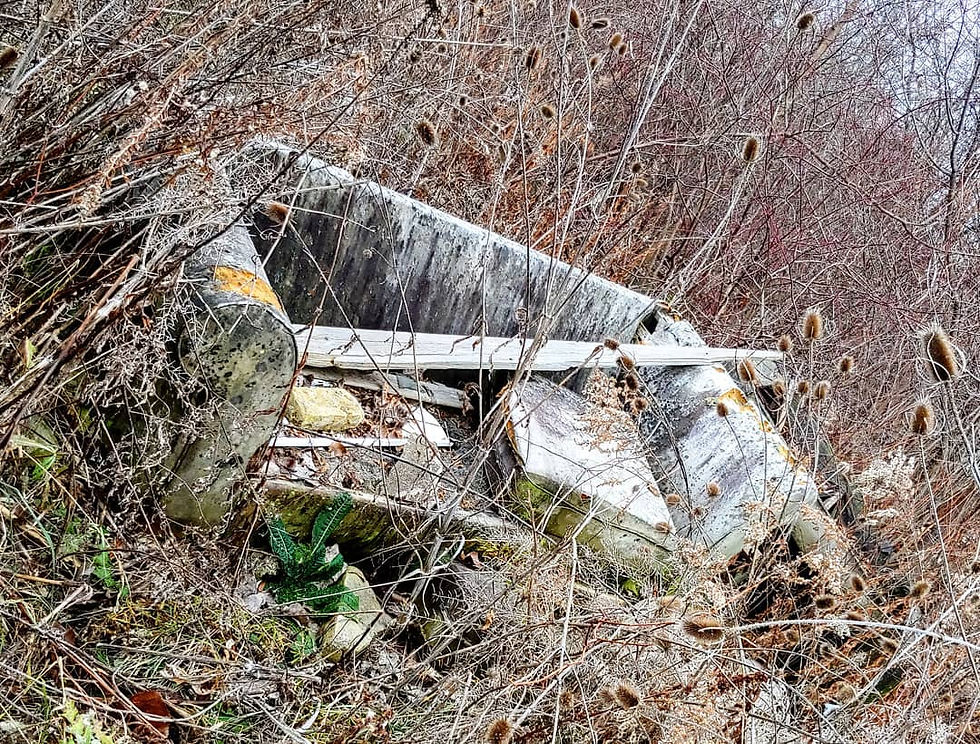OECD Learning Framework Goals for 2030: A clear mandate for the future of education.
- Rata Kat Kovosi
- Jul 23, 2025
- 2 min read
Updated: Aug 2, 2025

Module 5: Media in Action is full of important information for the future of education. Reflecting on this chart, created to communicate the goals of the OECD in terms of international educational alignment goals for 2030, I am relieved to see that there are many out there who recognizes the antiquated framework for education.
As stated in the document, our learners of 2018 will be our leaders of 2030. This statement reminds me of how quickly our generations flip along with technological advancements, impact on climate and our environment, and the global human population. Having read this article, alongside the state of the world that we are in, I had a flashback to being a child in about grade 7 or 8, listening to talk about the hole in the Ozone layer and the high levels of algae on the Great Lakes created by leaching of pesticides into our lakes. My friends and I felt a sense of doom and wondered if the world was coming to an end. We didn't understand the breadth of what was happening. I recall reading in National Geographic the impact that the state of climate change and environmental disasters was going to have on our global population, politics, migration, and inevitably, war.
We have known that this has been coming, but it feels like with all of this warning from academics, leaders such as David Suzuki, Jane Goodall, and Greta Thunberg, we continue to try to resolve our problems with Bandaids. Composting and not using plastic bags is not going to change the state of our planet (although it does help build good habits) but a restructuring of our education system and our misguided priorities might make a difference. You can see this in Nordic countries where education is much more hands on and based on guiding students to be capable to not only survive in the world we are handing them but also to be able to make vital changes to our system, develop technology that will assist and share ideas to help not only their own communities but our society at large.
Developing a strong sense of character is ground one, but it can be used to build a stronger curriculum to better serve our population, not just ourselves. Skills and knowledge put to work with an attitude of open-mindedness and empathy as well as strong values to make a difference are a way to move forward. Now, if we could only get the 1% to see the value of such investments in the character of our youth.





Comments